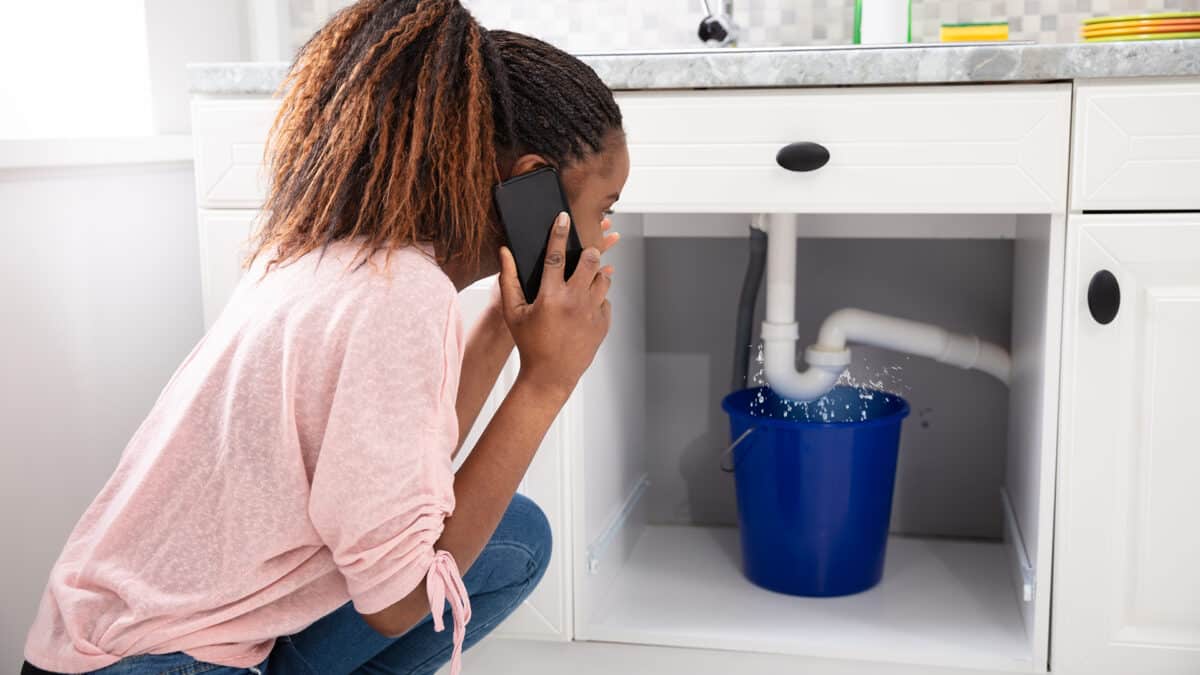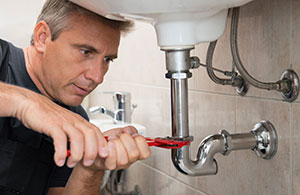On this page further down you can get a bunch of awesome data relating to Plumbing Emergencies: Tips on What To Do Before.

Pipes emergencies can strike at any time, triggering stress and possible damage to your home. Whether it's a burst pipeline, a stopped up drain, or a dripping faucet, knowing exactly how to manage the circumstance until a specialist plumbing technician shows up can conserve you from additional problems. This article offers essential emergency pipes tips to assist you mitigate damage and gain back control during a pipes crisis.
Shut off the Water
The initial step in any kind of plumbing emergency is to shut down the supply of water. For local issues, such as a leaking tap or toilet, turn off the shutoff near the component. In the case of a significant leakage or ruptured pipe, find your home's major water shut-off valve and turn it off quickly. Understanding the area of these valves ahead of time can conserve important time throughout an emergency.
Address Small Leakages with Temporary Repairs
Tiny leakages can quickly end up being substantial issues if left uncontrolled. Use these momentary fixes until expert aid arrives:
While these repairs aren't permanent, they can assist decrease water loss and damage.
Unclog Drains Pipes Safely
A stopped up drainpipe can be an aggravating and unpleasant issue. Right here's just how to tackle it:
If these approaches do not work, prevent utilizing too much force, as it may aggravate the clog.
Manage Overflowing Toilets
An overflowing bathroom can trigger prompt chaos. Here's what you ought to do:
Shut Off Your Hot Water Heater
In particular emergency situations, such as a ruptured pipe, it's a good idea to shut off your hot water heater. This protects against getting too hot or damages to the system when water stops moving. Switch off the power supply to the hot water heater (electric or gas) and let it cool down to stay clear of prospective risks.
Momentarily Quit a Burst Pipe
A ruptured pipeline can result in substantial water damages in minutes. To alleviate the problem:
Call a specialist plumbing quickly to attend to the problem permanently.
Handle Frozen Water Lines Carefully
In chillier climates, frozen pipelines are a common emergency situation. If you believe a frozen pipeline:
Avoid More Damage
Taking quick activity to decrease damages can save you money and time in the future. Here's exactly how:
. Have an Emergency Situation Pipes Package
Prepare a basic pipes emergency situation kit to manage small issues successfully. Your package should include:
Having these tools handy can make a substantial distinction in your ability to handle emergency situations.
Know When to Call a Specialist.
While quick fixes can aid temporarily, certain plumbing concerns call for immediate professional interest. Call a plumbing professional if:.
Quickly calling an expert makes sure the concern is resolved correctly and prevents further complications.
Conclusion.
Plumbing emergencies can be frustrating, but with the right knowledge and tools, you can manage the situation effectively until help arrives. By turning off the water supply, addressing little leakages, and utilizing short-term repairs, you can reduce damage and keep your home safe. Remember, these tips are temporary remedies; constantly get in touch with a certified plumbing to handle the origin of the issue. Preparation and fast thinking are your best allies in any kind of pipes emergency.
8 Helpful Tips for Managing Plumbing Emergencies at Home
If your plumbing system hasn’t failed once, wait for it because almost everyone has a story to tell. Sometimes, it could be simple emergencies such as a leaking pipe, a blocked cistern, or even a big burst pipe. In situations like this, you need to have some handy tips to save you some money and from possible damages.
Take care of minor issues early.
Sometimes, you could have avoided an emergency by taking proactive measures while it was still early. Some major plumbing emergencies can be a result of an ignored minor issue. We recommend that you have items like plumbing tapes and other related items. A plumbing tape can allow you to manage minor leaks before the plumber arrives.
Cut off the water supply.
This tip is essential in almost any type of leakage problem. For problems like minor leakages in the toilet or kitchen, turn off the supply that takes water to the affected pipes. If the leakage is a major pipe, you must shut off the supply valve to the entire building. This will help you avoid flooding your home and neighbors if you share a flat.
Know your plumbing system
Folks typically move into a new apartment without understanding the water supply around the building. This can prove disastrous if a water emergency arises and the plumber is far away. The previous tip will prove useless if you don’t practice this one. More importantly, know where your water shut-off valve is located – you’ll need that knowledge to prevent potential home floods.
Have some common handy tools
There are lots of plumbing emergencies that you can handle without hiring a plumber. That’s why you must keep some tools available always. Some tools that you can use to fix simple plumbing emergencies easily include plumbing tapes, screwdrivers, thread seal tapes, plungers, pliers, tape measures, and rubber gloves.
Insulate your pipes from cold
You’ll save yourself from many plumbing expenses if you protect your water pipes from the cold. This is because of the harmful effects that cold weather can have on your pipes. During winter, your pipes can burst from being overly expected to freezing temperatures. So, make sure insulators are there to keep the pipes working correctly.
Avoid practices that will clog your toilet.
Many people indulge in practices that can damage the plumbing system of the entire building. One of these is when they use their toilet to dispose-off garbage. They flush all kinds of things, such as paper towels, bandages, hairs, female sanitary products, etc., down the toilet. This will block your toilet in the long run, incurring unnecessary expenditures. Dump such waste in the trash instead.
Check your dials regularly.
Sometimes, there could be leakages in your home without noticing them in time. So, constantly monitor your water meter dial. If the dial is reading when there is nobody using water, this is an indicator that there is leaking. Check for leaks immediately. Call a plumber as soon as possible if you can’t find any.
https://www.constructionplacements.com/8-helpful-tips-for-managing-plumbing-emergencies-at-home/

As an enthusiastic person who reads on Expert Tips for Emergency Plumbing Repairs, I imagined sharing that article was essential. Be sure to take a moment to promote this blog post if you appreciated it. Many thanks for going through it.
Book